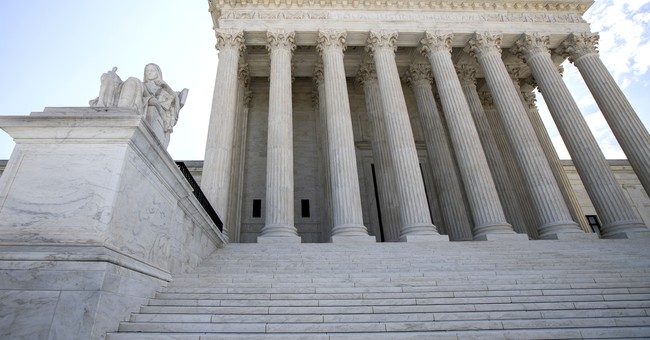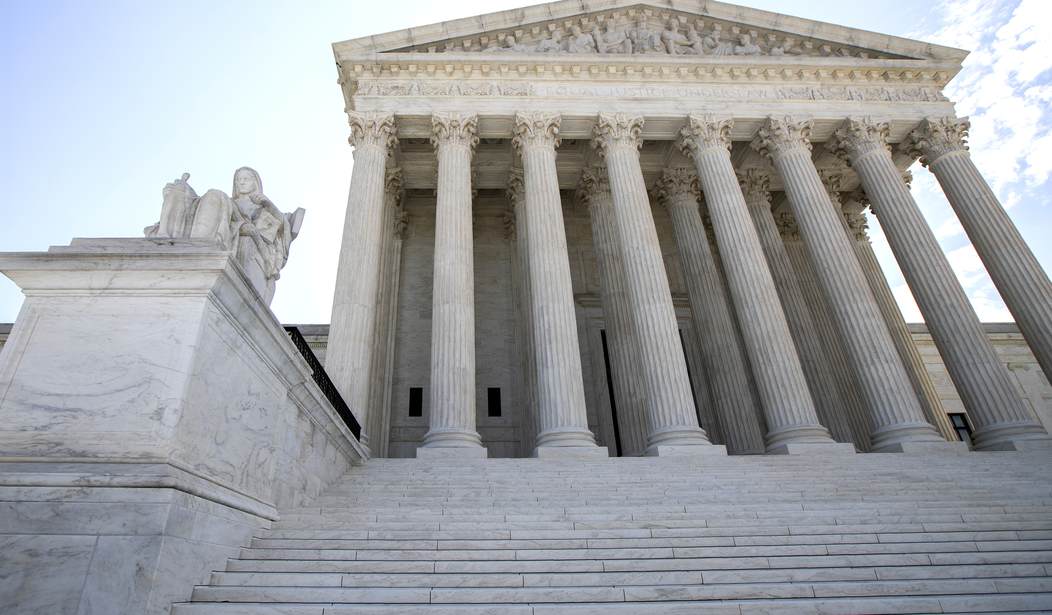
I think readers who enjoy my stories should accept that I’m going to write a lot of this particular kind of story over the next several days.
As I’ve written several times now, federal district court judges across the country are granting injunctions and entering judgments in litigation over state election laws which have the effect of rewriting the laws in ways desired by the plaintiffs bringing the challenges.
The legal construct being employed — over and over — is that the existing COVID-19 pandemic has created a factual circumstance where voters’ ability to cast their votes are being negatively impacted by existing laws — laws that have never been controversial in the past — and as a result, those laws are a violation of the voters’ Fourteenth Amendment and First Amendment rights to participate in the election without undue interference by state law. Finding a constitutional infringement, the district court judges then modify the laws in whatever manner they are deeming necessary to eliminate the infringement.
The tactics pursued primarily include extensions of voting deadlines, relaxation/elimination of witness requirements on absentee ballots, greater acceptance of ballots not in strict accordance with state law requirements, etc.
Today the Ninth Circuit granted a stay of an order issued by District of Arizona Judge Douglas Rayes — an Obama appointee — invalidating an Arizona statute requiring early voters to return their ballots along with a signed ballot affidavit to polling officials by 7:00 PM on Election Day. Any ballot deemed to have an insufficient affidavit (including one that is missing a signature) is to be disallowed by polling officials. If an early voter returns a ballot with an unsigned affidavit, Arizona law affords the early voter an opportunity to cure the problem, but only until the general Election Day deadline.
On September 22, 2020, Judge Rayes enjoined Arizona election officials from enforcing the election day deadline for “curing” a defective early-voter ballot and affidavit, and ORDERED the State of Arizona:
“to create and to institute a new procedure that would grant voters who failed to sign their ballots up to five days after voting has ended to correct the error.”
In granting the motion to stay the effect of the Judge Rayes’ order, the Ninth Circuit panel stated:
Under the familiar “Anderson-Burdick” framework for evaluating ballot-access laws, a nondiscriminatory, minimally burdensome voting requirement will be upheld so long as it reasonably advances important regulatory interests…. The State has made a strong showing that its ballot-signature deadline does so. All ballots must have some deadline, and it is reasonable that Arizona has chosen to make that deadline Election Day itself so as to promote its unquestioned interest in administering an orderly election and to facilitate its already burdensome job of collecting, verifying, and counting all of the votes in timely fashion…. [T]here can be no doubt… that allowing a five-day grace period beyond Election Day to supply missing signatures would indeed increase the administrative burdens on the State to some extent.
The prospects for mischief in other districts of the Ninth Circuit is reduced somewhat by the following comment in the Court’s Order granting the Stay:
And, as we rapidly approach the election, the public interest is well served by preserving Arizona’s existing election laws, rather than by sending the State scrambling to implement and to administer a new procedure for curing unsigned ballots at the eleventh hour. Indeed, the Supreme Court “has repeatedly emphasized that lower federal courts should ordinarily not alter the election rules on the eve of an election.”
As a general matter, “Opinions” from one panel in a Circuit are binding on later panels in the same Circuit dealing with the same issue. An Order granting a stay such as this does not carry the force of an “Opinion”, and the effect of the Order is limited to the case at hand.
But this Panel – Judges O’Scaillan, Rawlinson, and Christen — have laid down a marker for other panels who might be tempted to go in a different direction.
The panel is comprised of Judges appointed by Presidents Reagan, Clinton, and Obama, respectively.















Join the conversation as a VIP Member